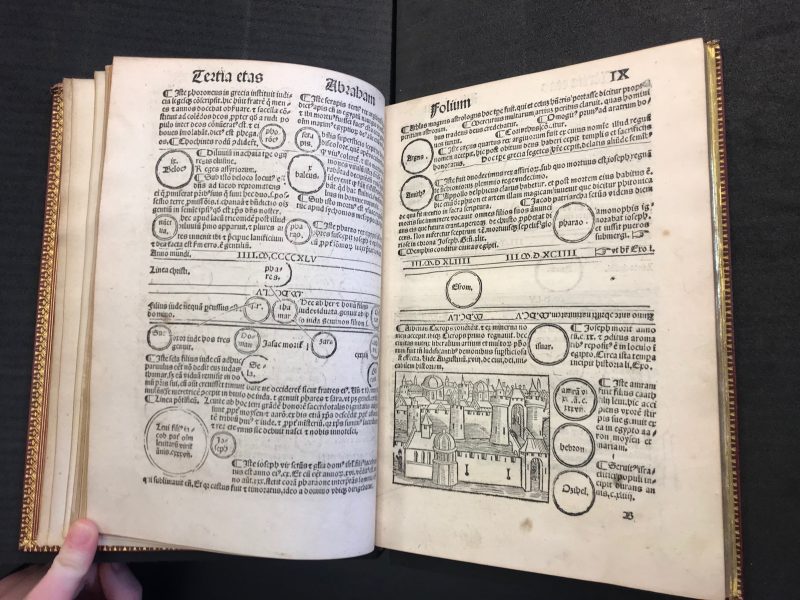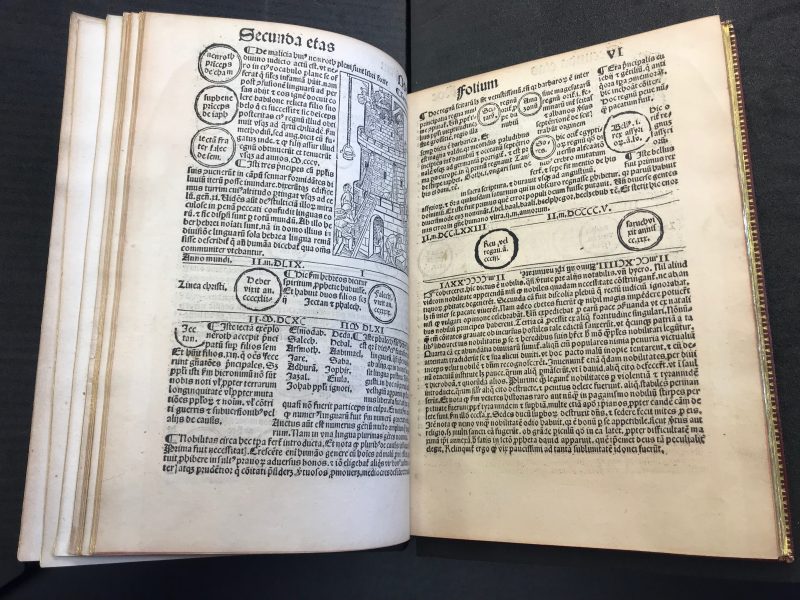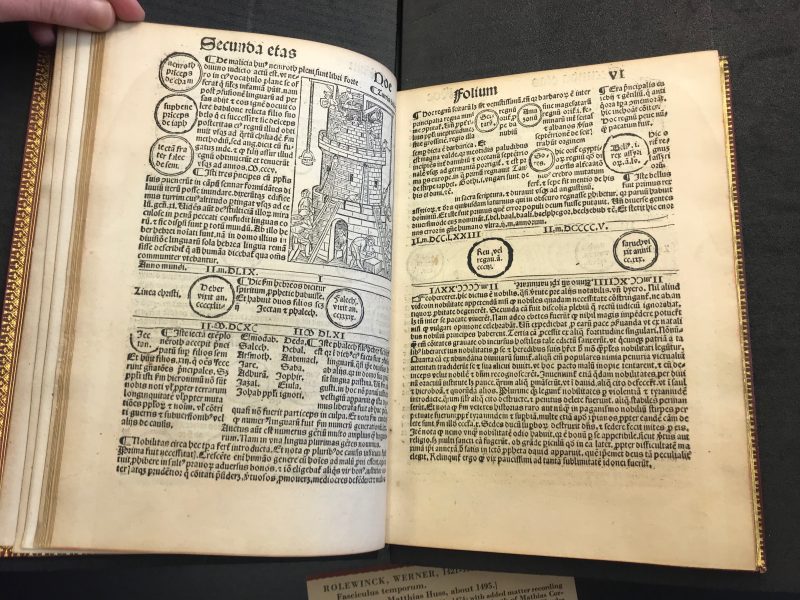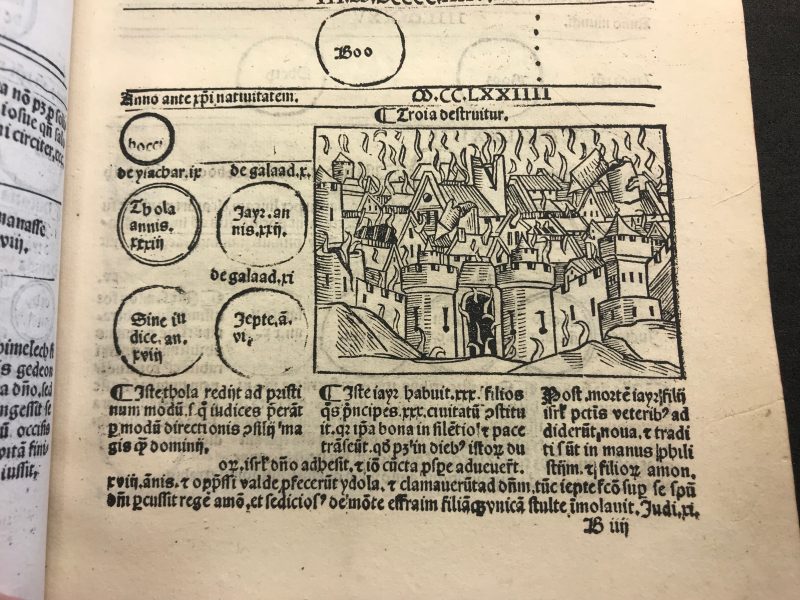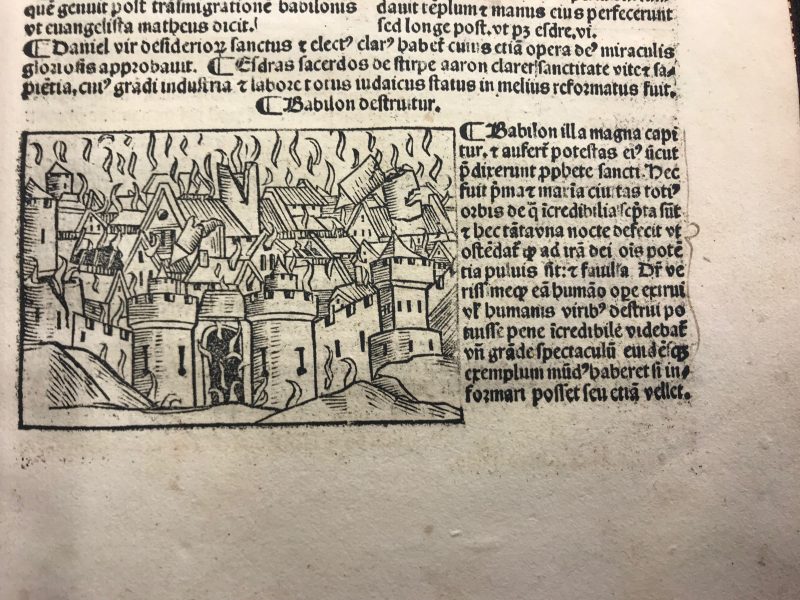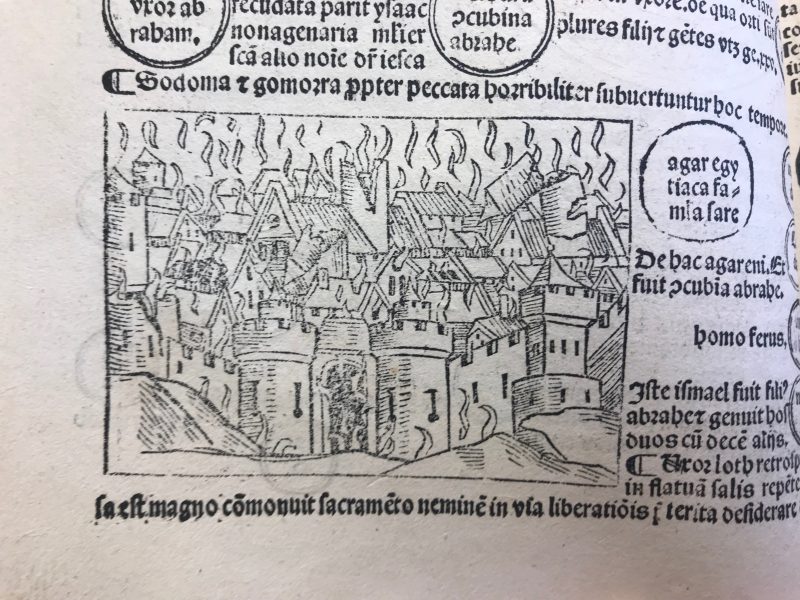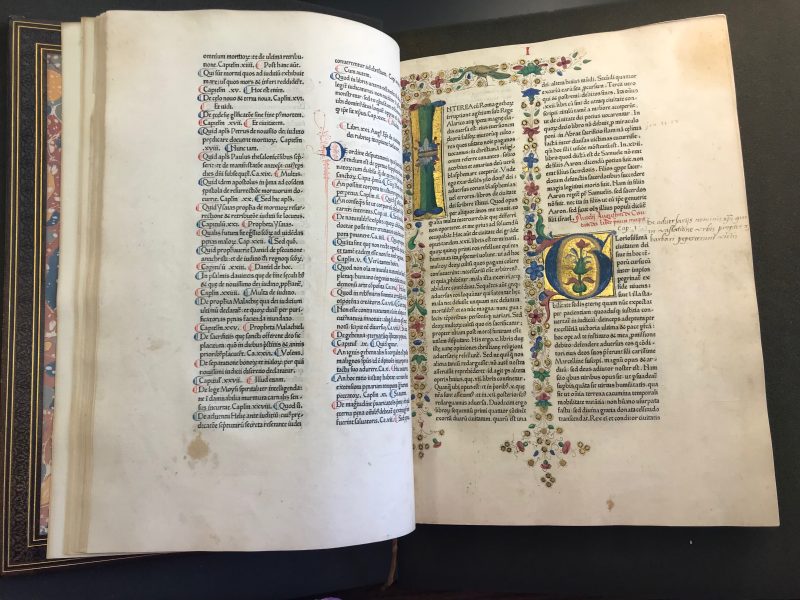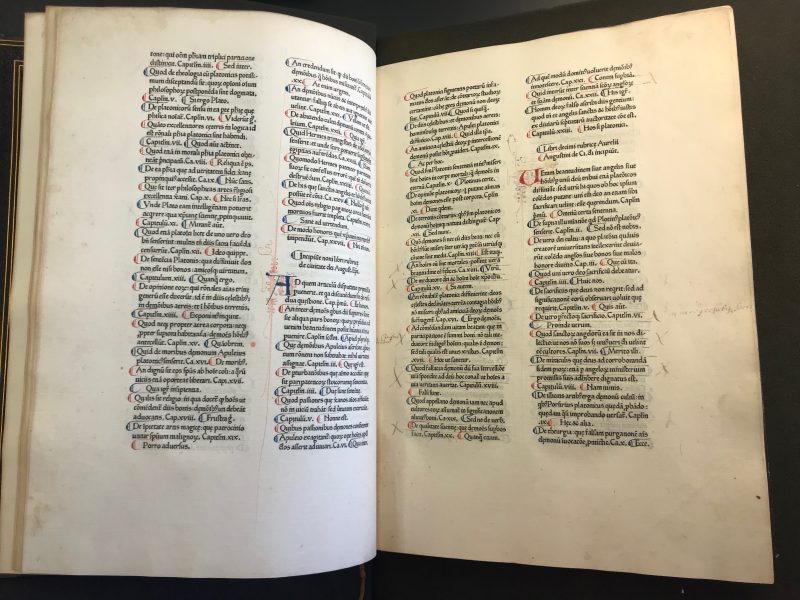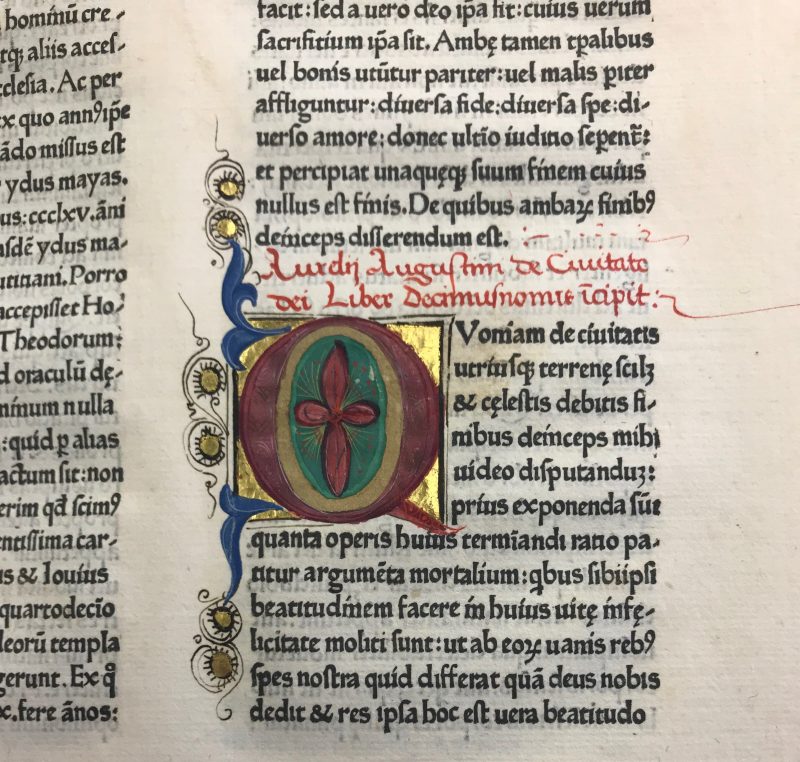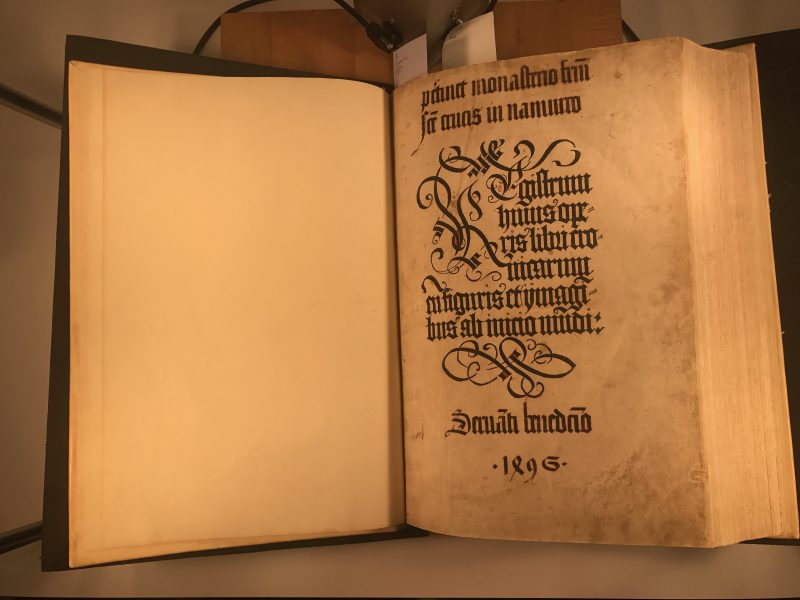
About
The John Hay Library owns approximately 30 medieval manuscripts, a relatively small collection compared to peer institutions. In addition to these early works, the Hay owns papyrus and linen fragments from the Book of the Dead as well as a few cuneiform tablets.
The Hay also owns around 700 incunabula, or texts printed between 1451 and 1501, during the early stages of printing history. One of the earliest incunabula collections, built by Rush Hawkins, the assortment ranges in subject and significance, as Hawkins sought texts from each printer of incunabula, rather than collect books by specific authors. As such, the Hay owns a range of incunabula of varying significance.
Of note are the Fasciculus Temporum, a volume of ecclesiastical and world history, of which the Hay owns 25 of the 33 editions printed. Fasciculus Temporum was first printed in Cologne in 1474. The edition above was printed in Lyon, France by Matthias Huss in about 1495 and includes additional matter regarding the brokered peace between Pope Alexander and Charles VIII, as well as the return of Charles to France. Of note in the above photos is the repeated use of a the same woodcut to depict the biblical fires of Babylon and Sodom and Gomorra.
Additionally, the Hay holds the early Christian theologian and philosopher Augustine of Hippo’s City of God, signed and dated by Bernardo Bembo, a political figure in Italy. The collection includes incunabula printed by Gutenberg and another printed by Peter Schoerfer. Finally, the Hay owns a near-perfect volume of the Nuremberg Chronicle, which was the last major text recounting world history printed in 1493, before knowledge of the Americas.
Images from Aurelius Augustine’s City of God, printed in Subiaco, Italy by Sweynheym and Pannartz, their last before moving to Rome.
Current Uses
The collection has been used by art historians studying the texts’ illuminations, though William Monroe, the curator of the collection, recently shared Dutch devotional texts with an exhibition in the Netherlands. Students have also conducted research using the texts, such as Charlie Steinman, who won the Brown Library Undergraduate Research prize for his survey study of defacement of the Nuremberg Chronicle.
Access
- To search for medieval manuscripts and incunabula, search key terms such as “ms latin codex” or “ms greek codex” in Josiah, Brown’s library catalogue. Author searches are also effective.
- Contact William Monroe at william_monroe@brown.edu for additional tips and tricks on locating manuscripts.
- Read more information on the collections of Early Printed books
- Related Brown Library Guides

